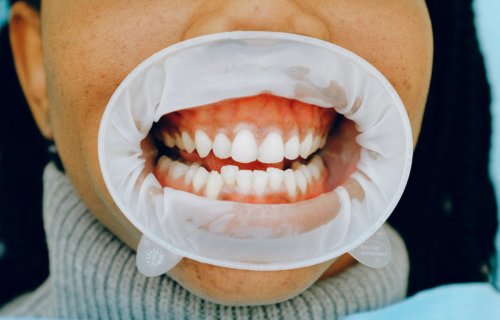PLYMOUTH, United Kingdom — Poor dental hygiene could lead to a potentially fatal problem in the brain, a new study warns. Scientists have found a link between mouth bacteria and the development of brain abscesses.
While abscesses resulting from bacteria sitting in oral cavities are uncommon, they can be deadly if left untreated.
“While many potential causes of brain abscesses are recognized, the origin of infection often remains clinically unidentified. However, it was still surprising to frequently find orally occurring bacteria in brain abscesses of unexplained origin,” says lead study author Holly Roy, a National Institute for Health and Care Research clinical lecturer in Neurosurgery at the University of Plymouth and University Hospitals Plymouth NHS Trust, in a university release.
“It highlights the importance of using more sensitive techniques to assess the oral cavity as a potential bacterial source in brain abscess patients. It also highlights the importance of improving dental care and oral hygiene more generally.”
Poor dental hygiene triples infection risk
The research team gathered their data from the medical records of 87 people admitted to a hospital for brain abscesses. They also underwent abscess sampling and peripheral cultures. The microbiological data gave researchers an opportunity to look for oral bacteria in the patients’ brain abscesses. Until that point, some of these patients had not received an explanation for their abscess.
Overall, doctors did not provide a cause for the brain abscesses in 52 patients. However, the new study finds these individuals were three times more likely to be harboring mouth bacteria that causes oral infections. Moreover, this group had significantly higher counts of Streptococcus anginosus. The bacteria is common in dental abscesses and is associated with pharyngitis, bacteremia, and infections in the brain, lungs, and liver.
The study authors suggest that the oral cavity could be a potential source of infection for brain abscesses when there is no clear explanation. The new study is one of many works by the Oral Microbiome Research Group, which is investigating the connection between the oral microbiome and a number of heart and neurological conditions.
Looking ahead, other research endeavors include clinical trials exploring the link between gum health and Alzheimer’s disease. Additionally, a clinical trial is underway looking at people at high risk for heart problems in primary care dental clinics. Their hypothesis is that the high cardiovascular risk has to do with an altered balance of oral bacteria, often seen in gum disease. This microbiome imbalance could then lead to high blood pressure and strokes.
The new findings appear in the Journal of Dentistry.


A year ago I felt a weird bubble come from the middle of my neck. Since then the fluid keeps trying to go up into my head. I can physically push it back into neck. So I’m betting if I don’t keep it outta my head, it will turn into a brain abscess. Going to doc tmw.
Back in 1974 my husband had a bacteria abscess located in left temporal lobe near pituitary gland. Upon removal of the access he lost his vision. He had an infected tooth and the dentist pushed the infection into the brain. He was 24.